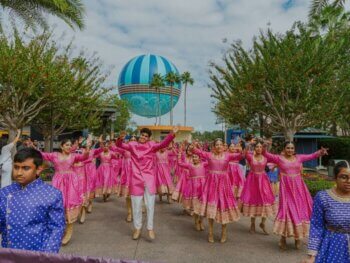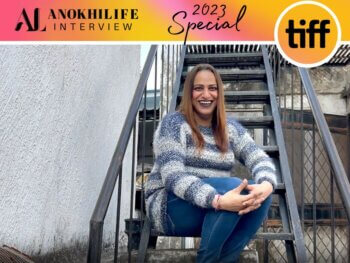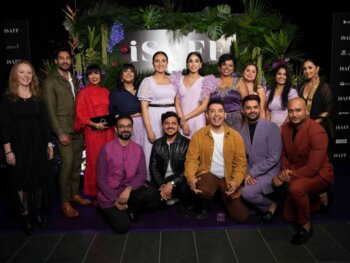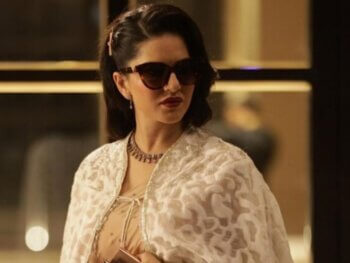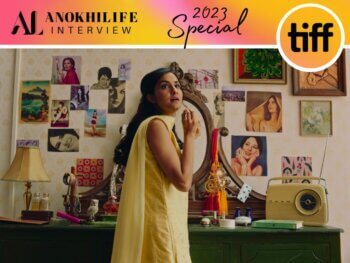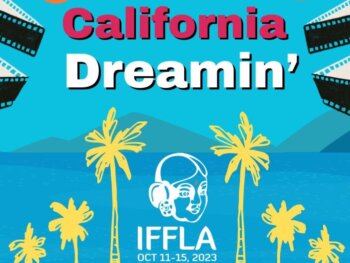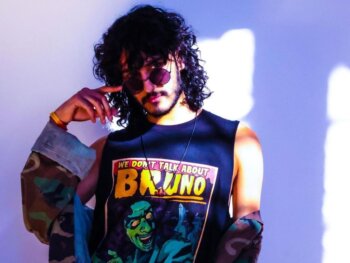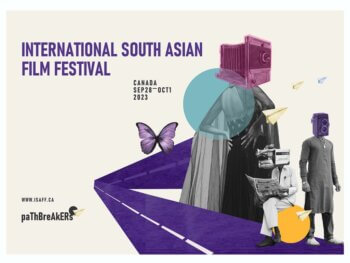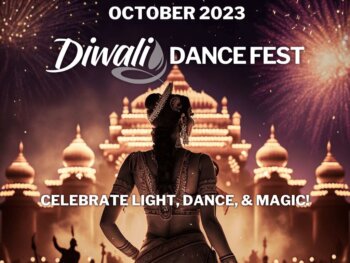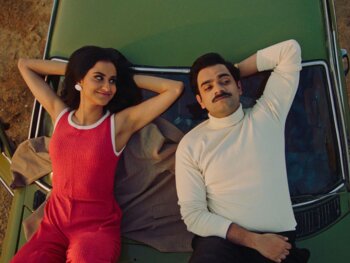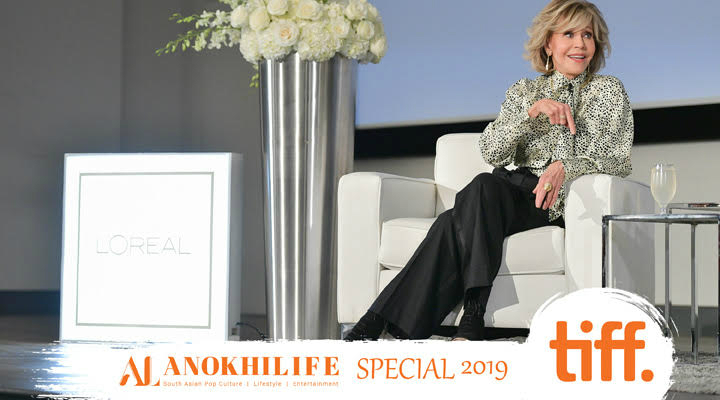
TIFF 2019: Life Lessons From An Icon – L’Oréal Paris In Conversation With Jane Fonda
Entertainment Sep 23, 2019
The Hollywood icon actress, business mogul, activist and L’Oréal ambassador touched down in Toronto during TIFF 2019 for an exclusive afternoon with L’Oréal. During an intimate and exclusive chat with noted Canadian broadcast personality Marilyn Denis, Jane Fonda shared stories about her life journey, quirky inside stories from her various movies and how we should follow the lead of the next generation of activists.
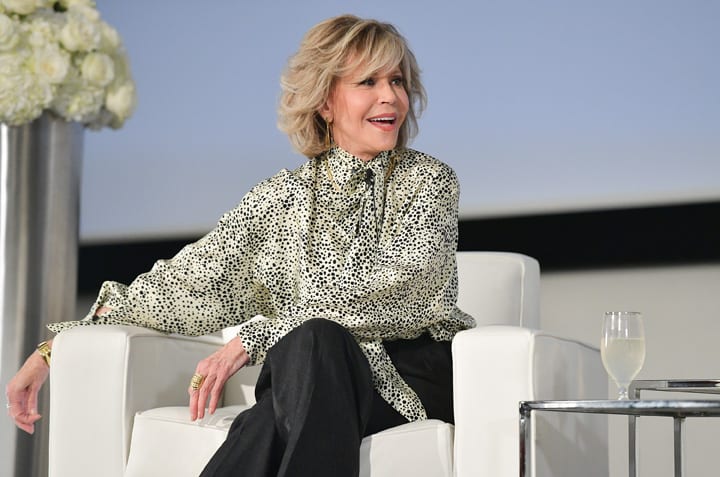
When I received my invitation to attend L’Oréal Paris In Conversation With Jane Fonda I was thrilled. Not only because I know L’Oréal always throws a good bash, but this particular Hollywood icon I’ve had a long-time fascination with. My film loving father would always teach us all about cinema with weekend filled marathon of movies. It was our education. Especially when it concerned the Fonda family. Henry, Peter and Jane. So when the opportunity came to actually listen in on Jane Fonda’s thoughts about her career, her business and activism through her chat with our very own Marilyn Denis, I couldn’t wait to here here. And learn from her.
On being the face for L’Oréal.
“I mean if somebody had told me twenty years ago that I would be a skincare ambassador for L’Oréal at 80, (I’m almost 82 years old) I would have said that you’re out of your mind. But you know it’s a great company. It’s a company that I believe in a lot. They have been good to me. They give me a platform and “Because You’re Worth It” is a wonderful slogan. We’re worth it! Too many of us are told that we’re not and we have to overcome that and own our lives and take agency into our own hands.”
When movements make us recognize the wider perspective of beauty
“It started with the women’s movement. It wasn’t that beauty brands decided that we’re gonna expand our view of what’s beautiful, but the women’s movement, the gay and lesbian movement, the disabled movement, the people with disabilities movement, the civil rights movement. All these movements, these mass movements around the world have forced people to open their hearts and minds and eyes to a more expanded view of what is beautiful. A more inclusive view and it’s beautiful to see.”
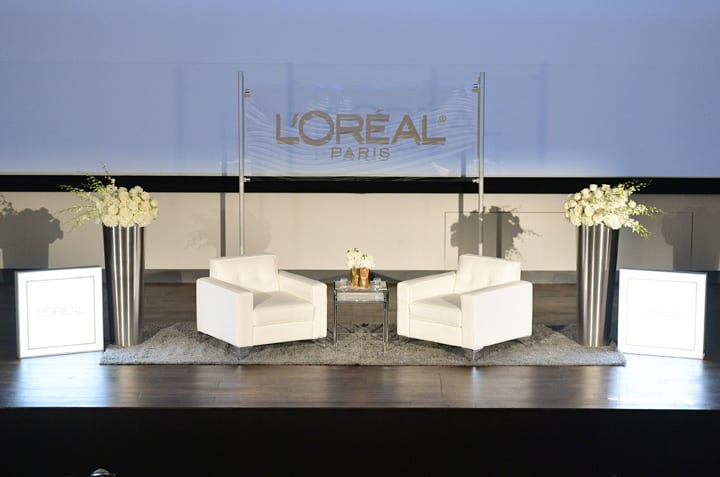
Who is looking to the youth as the inspiration of current activism
“I think the person to look to is Greta Thunberg. When she was twelve years old she was studying climate science and climate change. What she was seeing traumatized her so much that she stopped eating. She saw that our house is on fire and people were going about business as usual and it traumatized her to stop eating. When I read that it said to me I’m not doing enough.
The reality can traumatize a young girl and I am not doing enough. So for me — as someone listening to someone like that young student, or the young students from the Parkland school in Florida — they’re fighting to have a future. They are angry because we old people have robbed them of a future. I just think right now we have to listen to the young people and follow their lead. The lead of them and the lead of indigenous people. Because I don’t know why it is but indigenous people here in Canada and in the Lower Forty Eight who have been so maligned and devastated and ripped off and everything else by white settlers — why they’re still trying to tell us the best way to do things, why are they still trying to help us. Why they’re still trying to protect the world? They know because they live on the land. They are on the front line. I think between young people and indigenous people we have to stay alert and open and listen carefully and we’ll know what to do if we do that.”
What she wants her Canadian audience to tell the Prime Minister.
“Get him to stop with the pipelines. Get him to stick with what he said at the Paris Climate Summit. Get him to be a true environmentalist. Get him to support indigenous people here. Force him to live up to his words. Otherwise we should never trust a cute liberal again.”
Who made her really nervous.
“Mohammed Ali. He refused to go to Vietnam. ‘No Vietnamese ever called me a nigger’, what a great line. You know and I was very much against the Vietnam war so the fact that he was willing to go to jail rather than being drafted. I kneel at his feet.”
It helps having a hit TV show to be heard.
“Well as an activist it’s really important. It’s a lot better to be knocking on doors and talking to people who voted for Trump when you have a hit series behind you, than it was back in the day back when people would pull out chunks of my hair.”
On doing Monster-In-Law with Jennifer Lopez.
“It’s the only strategic thing, professionally that I’ve ever did. I had not worked with 15 years. I said “People will come to see the movie because of Jennifer Lopez but they’ll discover, or rediscover Jane Fonda”. When I walk down the street and especially when I see young people of colour and they see me and get excited, I know that it’s not because of Coming Home or On Golden Pond. It’s because of Monster-In-Law.”
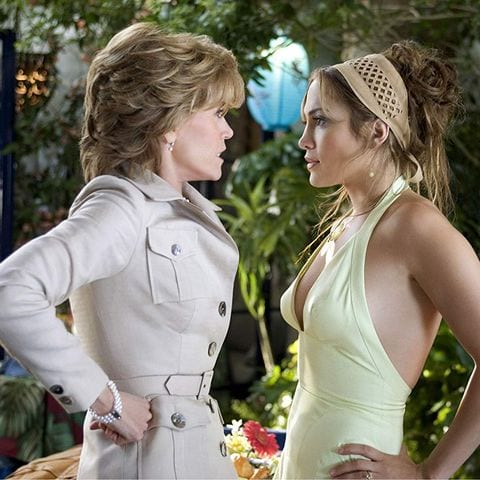
The impact of Grace and Frankie.
“It’s very moving to me how many women come and tell me and tell Lilly that it gives them hope. You know, that it makes them less afraid of getting old. That they can see two women in the series who have overcome a terrible tragedy. I just feel so lucky to be in a series where I am able to show love for a female friend. Isn’t it wonderful to be on a hit show that can show friendship between women? Instead of two women that are competitive and at each other’s throats all the time. It’s an absolute joy and I love [Lilly]. I love her so much. She’s an example of someone that inspires me and makes me a better person.”
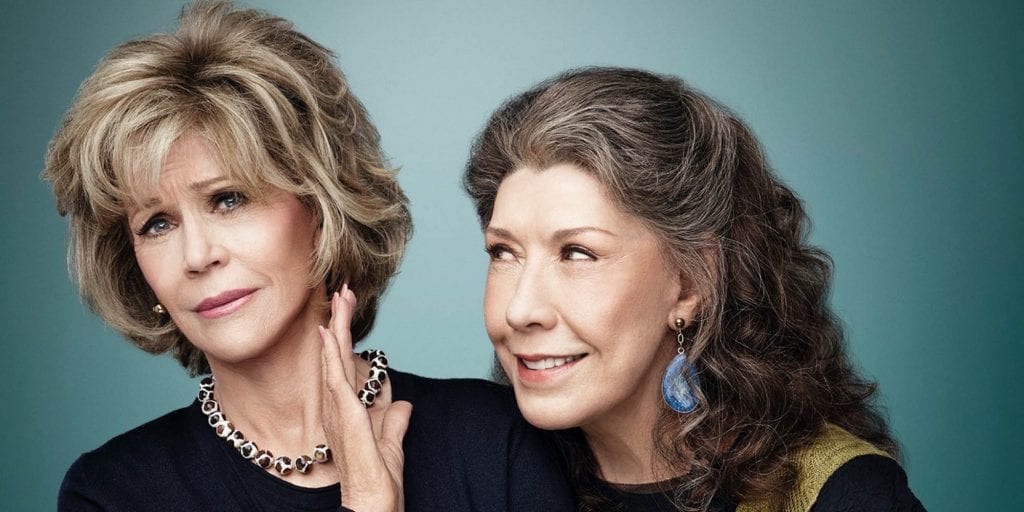
About coming up with the idea of making the movie 9 to 5.
“I saw [Lilly’s] one woman show I fell in love with her and I said I am not making movies about secretaries unless she’s in it. As I was driving home from the theatre after seeing Lilly — who I had never seen before — I turned on the radio and Dolly Parton was singing “Two Doors Down” and I thought (gasp) ‘Wow Dolly Parton as a secretary!’ You can even see her fingers and long nails. I mean the visual of her as a secretary let alone her personality, what a trio that would be. And that’s were I got the idea to have Dolly and Lilly with me in 9 to 5.”

Working with Kathryn Hepburn in On Golden Pond.
“On Golden Pond was a very deep experience. The person who really taught me was Kathryn Hepburn — who didn’t like me very much — but she was what an elder was supposed to be. She was very consciously teaching me things. Such as, when I finally learned to do the backflip —it took me and month and a half — I was terrified as I had no intention of doing it myself. But I knew that she would not respect me if I got a double so I made myself do it. I was rehearsing and rehearsing and I was all bruised and I’d come crawling out of the water and she was hiding behind a bush watching. I didn’t know she was there. She came over and said “Jane you got me to respect you. You have overcome your fear and that’s the most important thing.” I thought thank you God.
She was constantly teaching me things and moving me along. This relates back to L’Oréal. One of the early days of shooting there was a mirror on the stage and I was getting ready to shoot and suddenly she comes behind me and she takes my cheek, like this, and she said, ‘Jane what do you want to do with this?’. I didn’t even know what she was talking about. She said, ‘This is your mox, this is what presents you to the world. What do you want it to say?’ and I had no idea. I didn’t know what she meant and I didn’t know how to answer and I thought about it for years.
I’ve realized that she was upset with me because I didn’t pay very much attention to how I presented myself to the world. It’s because I was brought up to thinking that being self-conscious was a negative. Kathryn Hepburn was very conscious of self. She was conscious of how she presented [herself]. If you look, she had a style. She had a presence. And I didn’t have that. Once I really realized what she was saying to me that being conscious of self was not a negative thing, I started to pay more attention to the clothes that I put on and the make up that I put on. And I think that she would be very happy that I work for L’Oréal. That’s another example of how she mentored me.”
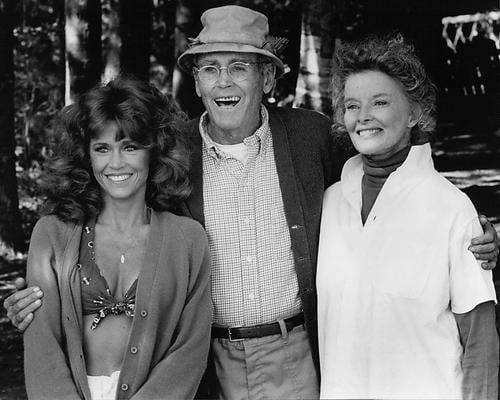
When she brought Michael Jackson to the set of On Golden Pond.
It was the first time he came without bodyguards and he stayed. Every day I would drive him to the set. Hepburn told him, ‘You have gotta stay hungry, you know. Don’t settle. Don’t get satisfied and things like that.’ So all of that just to say how, what a great mentor and elder she was.”
Embracing your shadow and the toxic journey towards perfection.
“At first I was very confused because in the bible in the King James version for example. You read Jesus saying to his disciples that you have to be perfect as our Father in Heaven in perfect. Jesus said that? My gosh! Except Jesus didn’t really say that. I read the [Bible] in Aramaic — the original language. It says you have to be “whole” like our Father in Heaven is whole. That is what Jesus said. You have to bring all of yourselves including your shadow. And all those things you’re told not to be and bright that all together to be whole and authentic and then you move forward with a lightness and a light you don’t have otherwise.”
She appeared co-hosting the Oscars (1986) alongside Alan Alda and Robin Williams in a gown that she bought off the rack at Holt Renfrew in Toronto.
“I saw it in the window. I went in and I bought it and I wore it at that Oscars, yes.
(Marilyn Dennis: Well that was from a Canadian designer Wane Clarke. Wayne Clarke is here)
“You’re kidding me! Where are you? I never had done anything like that before. Oh my gosh I love that dress I still have it I have worn it to many weddings. The fact is I had one gown and it was yours. Those were the days when we wore our own clothes. And I still have it, yes.”
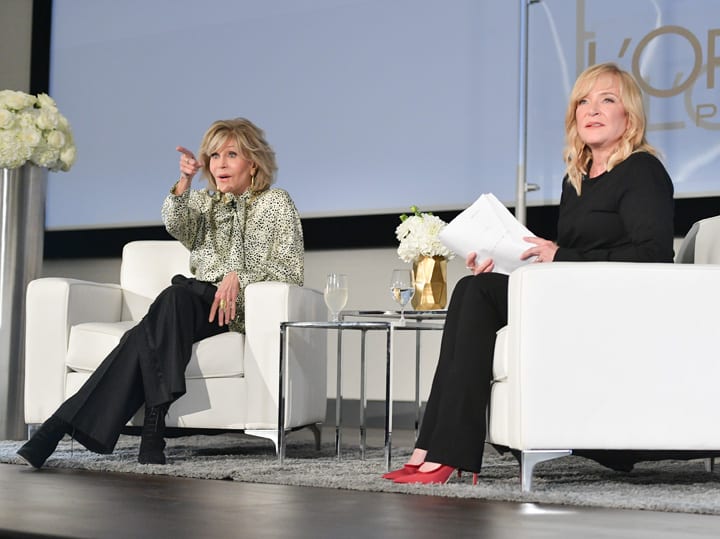
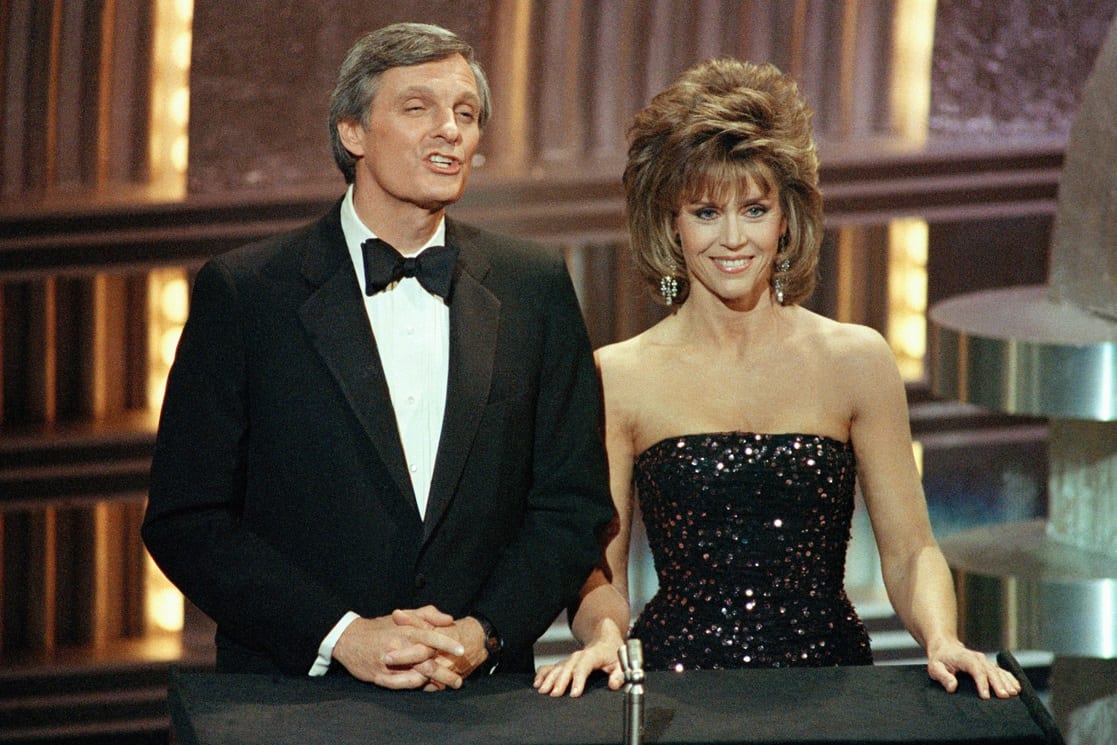
How her suit that she donned at the 1971 Oscars when she won for Klute was her understated activist gesture.
“I wore a black wool suit. Because the Vietnam War was raging and I wanted to not get all dressed up and frilly I wanted to make a statement.”
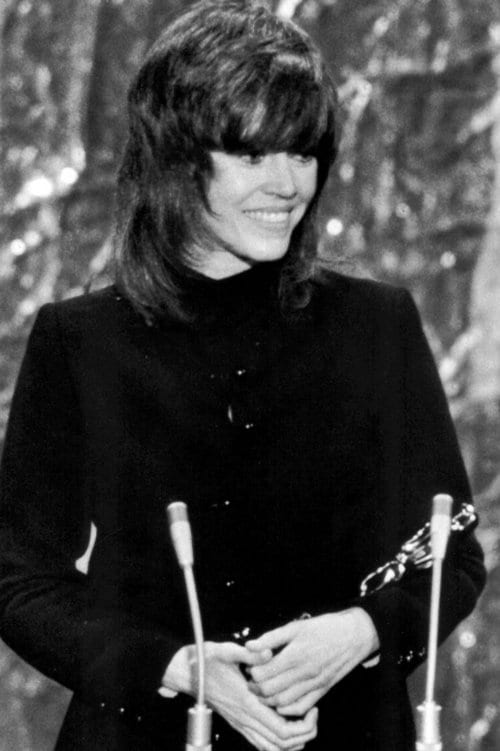
How her dad convinced her to not to get political when she won her Oscar for Klute.
“I went up there and people were concerned about what I could have said because I could have pulled a Vanessa Redgrave. But my dad had advised me about what to say and I said what he told me to say and I said was, ‘There’s a lot to say but tonight isn’t the time’. And I could hear a ‘ahh’ in the audience. I went off stage and went into a corner and cried because my dad had not won an Oscar, and I felt it was wrong that I had, with all of the great roles that he had played.”
What Rihanna told her at the Oscars last year where the 50th anniversary of Barbarella was also being celebrated.
“I want to be like you when I grow up.”
She rehearses her red carpet pose by studying this person.
“I try to channel Gwen Stefani. I’m very self-conscious. I don’t like red carpets, I don’t know what to do but I study Gwen Stefani.”
Her must-have beauty essential.
“L’Oréal’s matte lipstick. When you get older you don’t want to be shiny.”
Her fitness secret.
“I didn’t start working out until my forties. It matters more when you’re older. A young body is forgiving but when you’re older — you know what I mean? — just turning around when you’re driving to look over your shoulder getting in and out of an SUV (laughs). You’ve gotta stay strong. Not to mention make love.”
About the whole notion of “falling in love”.
“They say you ‘fall in love’. Well, that image, just think, fall in love. No. We should walk on our own two feet into a relationship with somebody walking towards us on their own two feet. The problem is that women —who grew up at the time that I did —weren’t supposed to be standing on their own two feet and men would be too scared to walk on their own two feet towards a woman who was standing on her own two feet. They wanted women on their knees (chuckles). My last relationship I had knee surgery, I had a knee replacement surgery right before I started the relationship. And I really did therapy very hard because, you know, you have to be on your knees.”
Breakups, forgiveness and owning up to your half.
“Life’s too short. And if you wait long enough. I don’t know if any of you are going through difficult separations and stuff like that now, but if you wait long enough you find out is that you were at least half responsible. We have to own our responsibility and then you can forgive the other person which makes life much easier.”
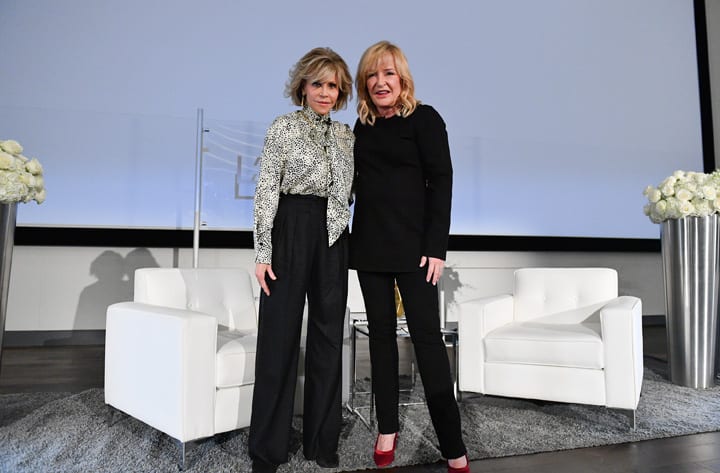
When you’re trying to find yourself and your purpose, and understanding the value of “No”.
“I think it’s important to let people know that being young is really hard. It’s important because so many young people just feel that they are the only ones that are angst-ridden and lost and don’t know how to move forward. It’s hard, especially now, very hard to be young. So my advice to young people is just know that you are not alone and that it is hard and that’s normal. For girls its important to know that to say “No” is a complete sentence. It took me to sixty years old to know that. But I think it’s when you get older that it becomes really important.”
Enjoying the “Last Act” (and about those 23,000 FBI pages on her).
“Last acts are really, I mean, they’re important because you get to the end and then you haven’t figured it out you are going to die with all kinds of regrets. I figured I have got to know how I’m supposed to move forward in this last act and in order to do that I have to know where I have been.
We don’t want to be like Christopher Columbus who didn’t know where he was going when he left, didn’t know where he was when he got there and didn’t know where he had been when he got back. So between fifty-nine and sixty I studied myself like I was an archaeologist. It was pretty easy in my case because my father was famous, and so I was in the press a lot. I could go back and read interviews and look at all kinds of films and photographs and so forth. And there was the 23,000 pages of FBI files on me, in case I forgot anything (laughs). I could read that.
And by the time I reached my sixtieth birthday I kind of discovered that I had been, kind of brave and I was deserving of love and respect and that there were certain things that I needed to accomplish before I died, such as showing up more for my children, learning how to forgive, asking for forgiveness, because I wasn’t afraid of dying I was afraid of regretting.
And when you do that, when you embrace the fact that you are mortal and you are going to die it’s wonderful because it then defines how you are living and it makes you living much more intentional.
And that’s what we need to do, is live intentionally. The most important thing I have come to in the last 22 decades and will carry forward until I die, is living intentionally, knowing where you want to go and why.
And as Kathryn Hepburn would say, ‘Put your best self forward’. So, yeah.
Main Image Photo Credit: George Pimentel
Hina P. Ansari
Author
Hina P. Ansari is a graduate from The University of Western Ontario (London, Ontario). Since then she has carved a successful career in Canada's national fashion-publishing world as the Entertainment/Photo Editor at FLARE Magazine, Canada's national fashion magazine. She was the first South Asian in...



































































































